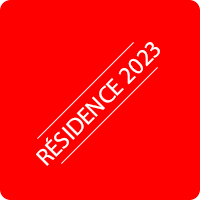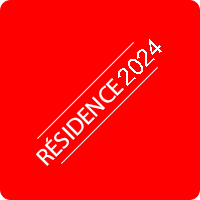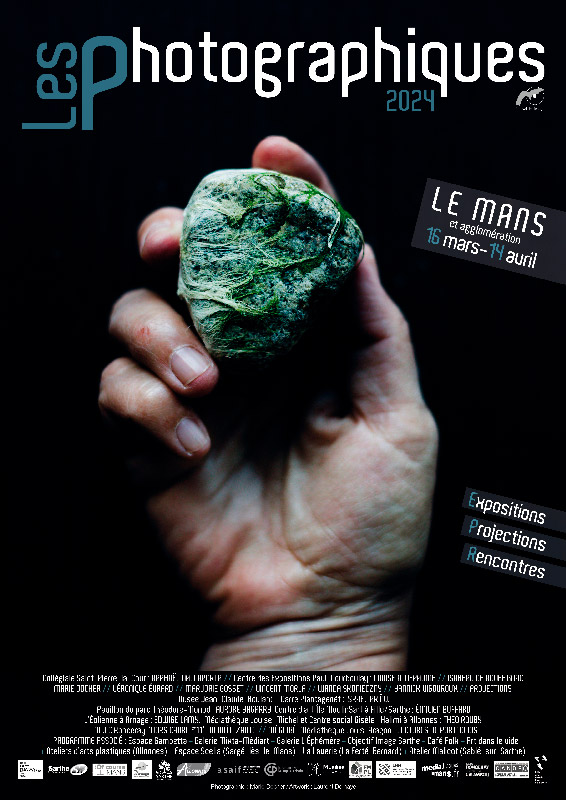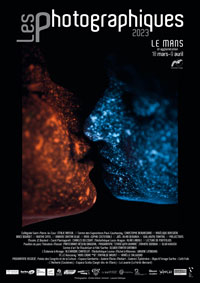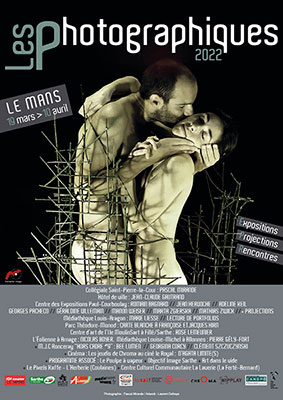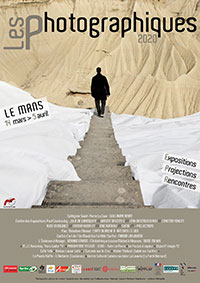Historical evolution of gambling across Europe
Gambling has deep roots in Europe, dating back to ancient Greece and Rome where dice and betting games were popular pastimes. During the Renaissance, structured games like baccarat emerged in Italy and France, paving the way for formalized casino gambling. The first recognized casino, the Ridotto, opened in Venice in 1638. This marked the beginning of regulated gambling venues across the continent.
In the 19th century, grand casinos like the Casino de Monte-Carlo attracted nobility and tourists alike. With the industrial revolution and increased mobility, gambling hubs spread across Europe, making casinos a key part of entertainment and leisure culture, particularly in spa towns and coastal resorts.
European attitude towards gambling and gaming
Europeans tend to view gambling as a socially acceptable form of entertainment when done responsibly. Public sentiment supports strict regulation to protect consumers while promoting tourism and local economies. Many European countries incorporate state-run lotteries and licensed casinos into their fiscal strategies.
Surveys suggest that 45–60% of adults in countries like the UK, France, and Germany have gambled at least once in the past year. While concern about problem gambling exists, most governments support harm-reduction policies rather than prohibition.
Key differences from American and Asian casinos
European Casino often emphasize elegance, tradition, and cultural integration, unlike the large, themed mega-resorts typical of Las Vegas or Macau. While American casinos promote loud, high-energy environments, many European venues focus on refined experiences, including classical architecture, fine dining, and cultural events.
Additionally, European casinos tend to have more diverse regulatory environments and often require guests to show ID, follow strict dress codes, and pay small entry fees—practices less common in the US or Asia.
Gambling laws by country
Europe’s legal landscape is diverse. The UK Gambling Act of 2005 is among the most robust, setting the standard for many jurisdictions. Germany recently unified its laws under the Interstate Treaty on Gambling 2021. Meanwhile, France operates under tight regulation by ARJEL (now ANJ), and Italy’s system is controlled by ADM.
Some countries like Norway maintain state monopolies, while others, such as Malta, have liberalised markets and low taxation, attracting offshore operators.
Licensing authorities and compliance
- UK Gambling Commission (UKGC)
- Malta Gaming Authority (MGA)
- Swedish Gambling Authority (Spelinspektionen)
- ANJ (France)
Operators must adhere to anti-money laundering (AML) directives, responsible gambling initiatives, and fair game testing by accredited labs like eCOGRA and iTech Labs.
Age restrictions and responsible gambling measures
Across most of Europe, the legal gambling age is 18, although it is 21 in some casinos (e.g., in certain German and Swiss establishments). ID checks are mandatory at entry points and online registrations.
Responsible gambling is emphasized with features such as deposit limits, time-outs, and national self-exclusion schemes like GamStop in the UK.
Monte Carlo, Monaco – Glamour and tradition
The Casino de Monte-Carlo is the epitome of European opulence. With marble columns, chandeliers, and high-stakes rooms, it has become a symbol of prestige and cinematic allure, featured in James Bond films. Entry is €17, and dress codes are strictly enforced.
Monaco sees over 250,000 casino tourists annually and boasts tax-free winnings, adding to its appeal.
London, UK – Sophistication and diversity
London hosts over 20 casinos, including the upscale Crockfords and The Hippodrome. Games range from European Roulette to poker tournaments. UKGC regulation ensures fairness and player protection.
Online alternatives like Betway, Grosvenor, and William Hill also thrive under UKGC oversight, making the UK a hybrid gambling hub.
Baden-Baden, Germany – Spa-town luxury
This iconic 19th-century casino is located in the Black Forest region. Known for its elegance and classic decor, it attracts a mature, wealthy clientele looking for a tranquil and classy experience.
The venue often combines wellness tourism with gaming, making it popular among those who enjoy both luxury and leisure.
Lisbon and Estoril, Portugal – Coastal charm
Casino Estoril is one of the largest in Europe, with over 1,000 slot machines and 35 table games. It inspired Ian Fleming's *Casino Royale*. Lisbon’s casino scene is similarly vibrant, mixing local flair with international gaming options.
Portugal's gambling market generated over €300 million in 2024, with a steady incline in tourist interest.
Eastern Europe – Growing market and affordable thrills
Countries like Romania, Bulgaria, and the Czech Republic offer affordable yet modern casinos. Prague and Bucharest, in particular, have seen a 20% annual rise in gambling tourism over the past five years.
The cost-effectiveness, less stringent dress codes, and lower table limits make these regions appealing to younger and budget-conscious travellers.
Land-based casinos
These remain the backbone of European gambling. Most are located in major cities and tourist hubs, often integrated with luxury hotels and entertainment complexes. Traditional games dominate the offerings, with poker, roulette, and blackjack being staples.
Facilities often include spas, bars, theatres, and gourmet dining, enhancing the overall experience.
Online casinos
Europe accounts for 49% of the global online gambling market. Leading platforms include 888casino, LeoVegas, and Unibet, all licensed by bodies like UKGC or MGA. Features include live dealer games, progressive jackpots, and gamified loyalty schemes.
Mobile optimisation and secure payment gateways have driven usage, especially in the UK, Sweden, and the Netherlands.
Cruise ship casinos
While limited to international waters due to legal constraints, cruise casinos are increasingly popular. Ships operating in the Mediterranean or Baltic seas often feature compact but well-equipped casinos.
These typically include slot machines, blackjack tables, and roulette wheels, offering unique views and a social gaming atmosphere.
European Roulette vs. American Roulette
| Feature | European Roulette | American Roulette |
|---|---|---|
| Number of Zeros | 1 (0) | 2 (0, 00) |
| House Edge | 2.7% | 5.26% |
European Roulette is more common across European venues due to its lower house edge and greater player appeal.
Blackjack and Baccarat
Blackjack remains a staple, with 3:2 payouts and multiple deck variants. Baccarat is more prevalent in southern Europe and is popular among high-rollers due to its low house edge (1.06% on Banker bets).
Card-counting is discouraged, and in some regions, automatic shufflers are used to prevent exploitation.
Poker – Tournaments and cash games
European Poker Tour (EPT) hosts events in cities like Barcelona and Prague. Online platforms like PokerStars EU dominate the digital scene. Many land-based casinos run nightly cash games and weekly tournaments.
No-limit Texas Hold’em is the most popular format, with buy-ins ranging from €50 to €10,000.
Slot machines and electronic gaming
Slot machines dominate floor space, especially in tourist-heavy areas. Progressive jackpots such as Mega Moolah and Book of Ra attract thousands daily. RTPs typically range from 92% to 97%.
Electronic versions of roulette and blackjack are available, offering low-stakes play and faster turnover.
Entry requirements and guest policies
Most casinos require a valid ID or passport. Entry fees may apply (e.g., €10 in Monaco). Photography is often restricted, and mobile phone use is discouraged near tables.
Guests must adhere to conduct policies, and visibly intoxicated individuals may be denied entry.
Dress standards by region and venue
- Monte Carlo: Jacket and tie required
- London: Smart casual; formalwear preferred at elite clubs
- Eastern Europe: Casual permitted, but no sportswear or flip-flops
Tipping customs and player behaviour
Tipping is discretionary but appreciated. In the UK, 5–10% is typical for good service. In Monaco and Germany, tipping is less common due to service charges.
Players should avoid distracting others, adhere to betting etiquette, and show respect to dealers and staff.
Casino resorts and hotels
Many top casinos are part of integrated resorts, offering 5-star accommodations. Examples include Casino Lisboa Hotel and Hotel de Paris Monte-Carlo.
These venues often combine entertainment, shopping, and wellness facilities.
Fine dining and nightlife
Michelin-starred restaurants are common in casino complexes. Live performances, nightclubs, and lounges enhance the nightlife offering.
For instance, London’s Hippodrome features multiple bars and a rooftop terrace with live jazz.
Spa and leisure services
Baden-Baden excels in combining spa treatments with gaming. Many resorts offer full-service spas, gyms, and yoga retreats, creating a balanced escape.
This holistic approach caters to wellness-focused guests and leisure travellers alike.
Currency used in casinos
The euro is the most common currency, though the UK uses GBP and Switzerland uses CHF. Always check currency policies when travelling cross-border.
Minimum bets and spending tips
Minimum bets range from €1 on slots to €25 on premium roulette tables. Budget-conscious players should start with electronic tables or lower-stake areas.
- Set a loss limit before you play
- Track time and budget
- Use casino loyalty programs for rewards
Currency exchange and ATM access
Casinos usually have on-site ATMs and currency exchange desks. However, fees may be high (3–5%), so it’s wise to bring some local currency or use travel cards with low foreign transaction fees.
Legal status and accessibility
Online gambling is legal and regulated in most of Europe. The UK, Malta, Sweden, and Denmark have robust frameworks. In contrast, countries like Poland and Hungary restrict access to government-approved platforms only.
Trusted online platforms and software providers
- Bet365 (UK)
- LeoVegas (Sweden)
- 888casino (Gibraltar)
- Playtech, NetEnt, Microgaming – major software providers
Payment options and security measures
| Method | Average Processing Time | Fees |
|---|---|---|
| Visa/MasterCard | 1–3 days | 0–2% |
| PayPal/Skrill | Instant | Free–1% |
| Bank Transfer | 3–5 days | Up to 3% |
Self-exclusion and limit-setting tools
Players can use tools like GamStop (UK), ROFUS (Denmark), and Spelpaus (Sweden) to restrict access. Casinos also provide in-session reminders and cooling-off periods.
National helplines and support organisations
- GamCare (UK): 0808 8020 133
- BeGambleAware
- EUFAS – European Federation of Addiction Societies
Promoting healthy gambling habits
Most operators feature responsible gambling banners, offer budget tracking tools, and promote educational campaigns. Transparency in RTP and odds is a legal requirement in the UK.
Technological innovations
AI-powered recommendation systems, augmented reality slots, and blockchain-based provably fair games are on the rise. By 2027, the European online gambling market is expected to hit €50 billion.
Rise of mobile and live dealer platforms
70% of UK gamblers now use mobile devices. Live dealer platforms by Evolution Gaming and Pragmatic Play offer immersive, high-definition experiences on smartphones.
Sustainable and green casino initiatives
Green casinos are emerging in countries like Sweden and the Netherlands, focusing on energy efficiency and eco-friendly operations. Wind-powered servers and recycled materials are becoming standard features.
Transport and access to major casinos
Most casinos in major cities are accessible via metro or bus. Ride-hailing apps like Uber or Bolt are available in most regions. Consider airport-to-hotel transfer services in cities like Monte Carlo and Lisbon.
Accommodation planning
Book well in advance during peak seasons (June–August). Look for bundled casino-hotel packages, often including chips or free meals.
Tourist attractions nearby
Combine gaming with sightseeing:
- London: Buckingham Palace, West End shows
- Monte Carlo: Prince’s Palace, Oceanographic Museum
- Lisbon: Belem Tower, Jerónimos Monastery
Summary of key insights
European casinos offer a blend of elegance, regulation, and cultural richness. From Monte Carlo’s luxury to Eastern Europe’s affordability, there's something for every traveller and gamer. With strong legal frameworks and cutting-edge platforms, the region remains at the forefront of global gaming.
Final tips for prospective casino tourists
Always research the venue, understand local laws, and budget responsibly. Whether visiting a historic hall or logging in online, choose licensed operators and prioritise enjoyment over earnings.




